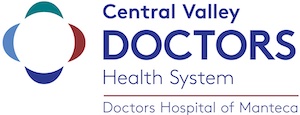Doctors Hospital of Manteca Wants to Eliminate Opioid Use
Sep 24, 2018Manteca, Calif. – Doctors Hospital of Manteca is utilizing a program that may help eliminate or significantly reduce the use of opioids and potential adverse side effects.
Enhanced Recovery After Surgery (ERAS) is a comprehensive, patient-centered approach to pain management before and after surgery that assists patients through their procedure or surgery with minimal use of opioids or narcotics. This helps them recover faster with less nausea, vomiting and pain. In addition, this allows them to return to normal activity more quickly because of the reduced side effects of opioid use.
There is no increased risk of complications by utilizing this model. The use of ERAS may eliminate or significantly reduce the use of opioids or narcotics and adverse effects of these types of medication which includes respiratory sedation, nausea, vomiting, and delayed bowel function.
The ERAS process includes:
- Hydration – patient can drink clear liquids up to two hours before surgery. The prior rule was “nothing after midnight.” Patients should not eat solid foods after midnight but they can drink as tolerated which reduces nausea and vomiting after surgery.
- Nutrition – including carbohydrate loading two hours prior to surgery. Two hours prior to surgery patients are given approximately eight ounces of juice, Gatorade or Ensure to “carbohydrate load.” This helps reduce nausea and vomiting after surgery.
- Non-opioid pain medications – if the patient does not take opioid/narcotics then we try to avoid them all together by treating pain with medications like Tramadol, Tylenol, Celebrex and Gabapentin. We do this for two reasons: First, opioid/narcotics have the known side effect of nausea and vomiting which limit activity and recovery. Second, there is an opioid/narcotics crisis and shortage in the nation. Reducing the use of opioid/narcotics is at the forefront of all healthcare quality improvement programs.
There are three stages of ERAS: before surgery, during surgery and after surgery. Not all patients are a candidate for ERAS because they are already taking opioids/narcotics. After surgery, it is important to maintain a patient’s current pain regimen and then work through their primary doctor to reduce their use of opioid/narcotics during the healing process.
All patients benefit from the first two stages of ERAS because they experience reduced nausea and vomiting after surgery by maintaining adequate hydration prior to surgery. Additionally, the “carbohydrate load” drink has been shown to reduce insulin resistance, minimize nitrogen and protein loss, and maintain muscle strength to accelerate recovery immediately after surgery.

